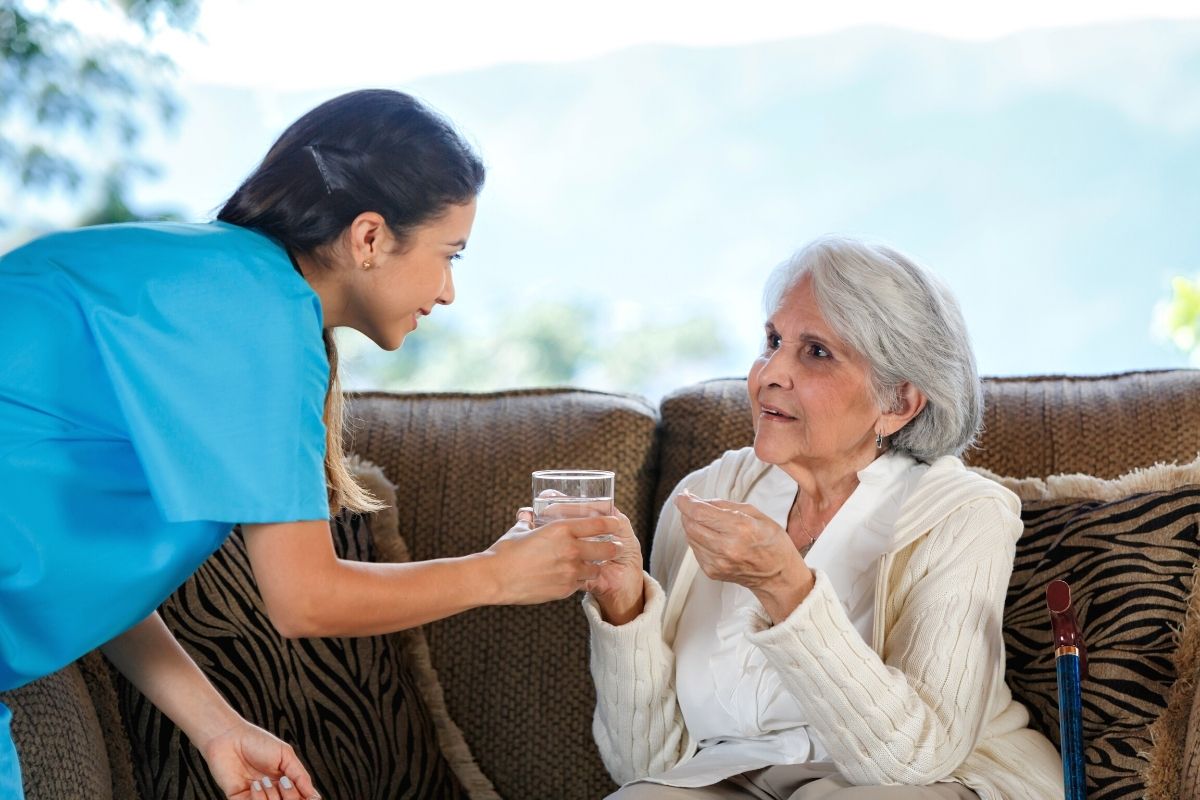Importance of Hydration During Summer

Staying hydrated during the summer is crucial for all ages, especially seniors. Caregivers who are monitoring water intake can take steps to prepare for hotter weather to inhibit severe health problems caused by dehydration. Read on for more information about dehydration and top caregiver tips for this summer.
Science of Dehydration
In hot and humid weather during the summer, people lose a lot of body fluids through sweat. Because our bodies are made of more than 60% of water, losing fluids can become very detrimental. Water is the number one best option to replenish fluids, but low calorie sports drinks and coconut water also both replace sodium and potassium lost in sweat.
Hydration for Heart Health
As temperatures rise outside, hydration is key no matter what we’re doing, whether it’s exercising, sitting outside in the sun, or going for a bike ride, amongst many other activities. Also, staying hydrated is actually vital for heart health. With proper hydration, the heart pumps blood more easily and therefore does not have to work as hard. The benefits of hydration clearly goes way beyond replenishing your fluids: it keeps you alive and helps your body work more efficiently.
Pre-Existing Conditions & Illnesses May Put You at a Higher Risk of Dehydration
If you are affected by kidney disease or diabetes, you may be at a higher risk of dehydration. Certain medications act as diuretics, which results with the body losing more fluids. Also, older adults actually have 15% less water than young adults. So, if you work with elderly patients, it is important to take care of yourself, along with making sure you are aware of their possible conditions, medications, or illnesses.
Negative Effects of Improper Hydration
On the extreme side, dehydration can lead to severe conditions like heat stroke or other dangerous problems. It can also negatively affect your exercise performance by decreasing sweat rate, blood volume, and dissipation. Water aids in clearing toxins, digesting food, and absorbing nutrients, so these processes are put out of balance with insufficient hydration.
Your mood and energy levels may be disrupted as well.
Signs of Dehydration
It is important to recognize the signs of dehydration, some of which include fatigue, dark urine, dizziness, extreme thirst, confusion, headaches, or infrequent urination. Concerning symptoms include fast breathing, increased heart rate, fever, dry mouth, or low blood pressure.
Tips to Stay Hydrated
On days you are more active and sweating in the sun, you’ll need more fluid intake than a sedentary day inside. For these summer months, staying hydrated may become easier by carrying a refillable water bottle and keeping extra ones ready to go, using fruit or other things like cucumber in your water for flavor, avoiding soda and coffee, and eating lots of produce, which have high water content.
When around the elderly or children, it is important to stay on top of their fluid intake as well. For instance, home care agency attendants can avoid signs of dehydration by packing extra water bottles, limiting sun intake, and using protection such as sunscreen, hats, and UV sunglasses when spending time outdoors.
TruCare Homecare is a women-owned and family-operated business centered on providing compassionate in-home senior care in the greater Philadelphia area. Our facility offers adult day care services in addition to home health care services such as meal preparation, grooming, mobility assistance, and transportation. Caregivers are dedicated to creating meaningful bonds with clients and their families, offering tailored care plans that best benefit individuals’ health care needs. Recognized as the Best of Home Care Provider and Best of Home Care Employee of 2019 and 2020, our reputation speaks for itself. For more information about our services, call our office at 610-878-2273 or visit our website.





